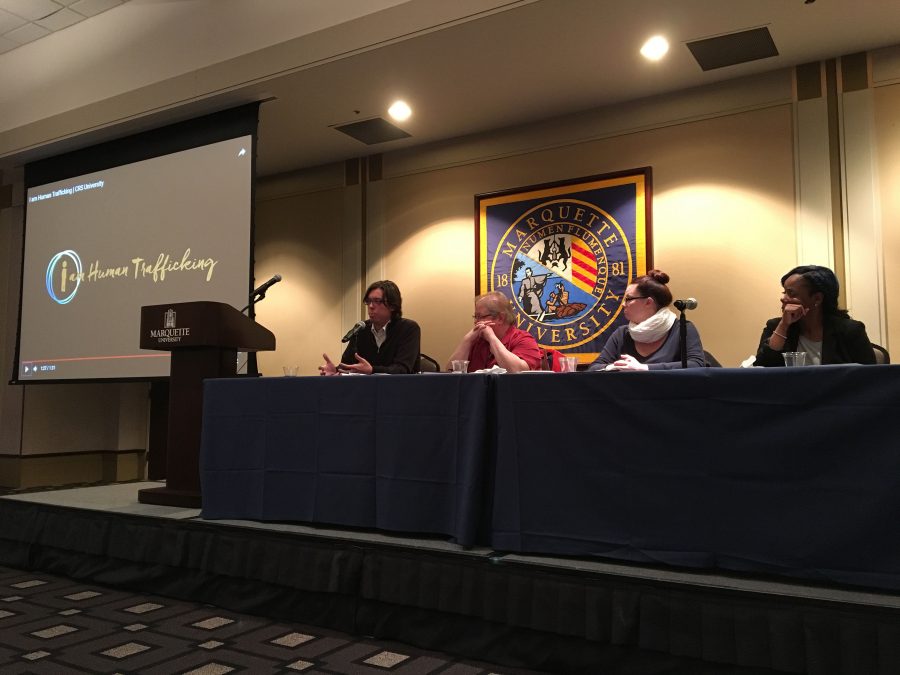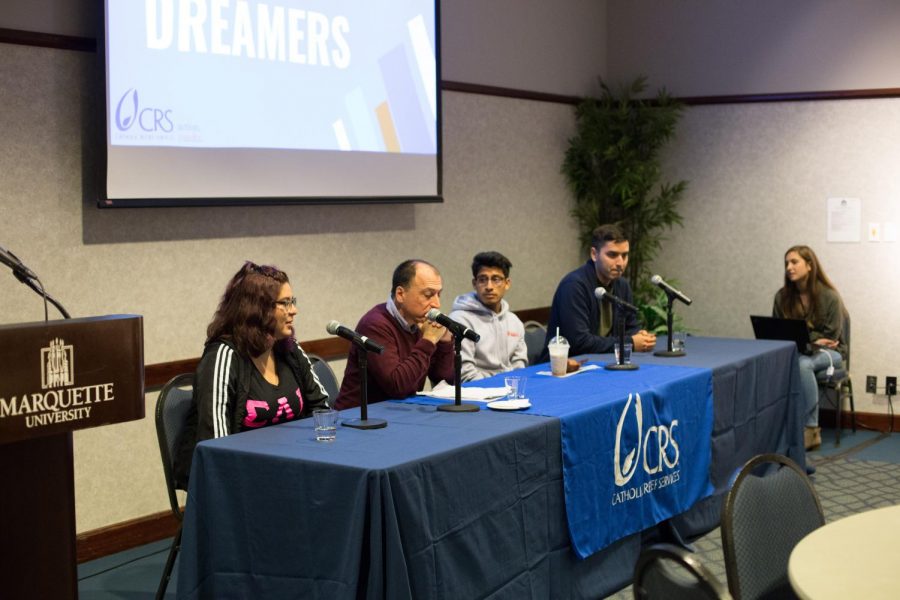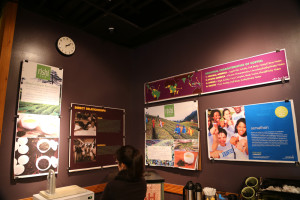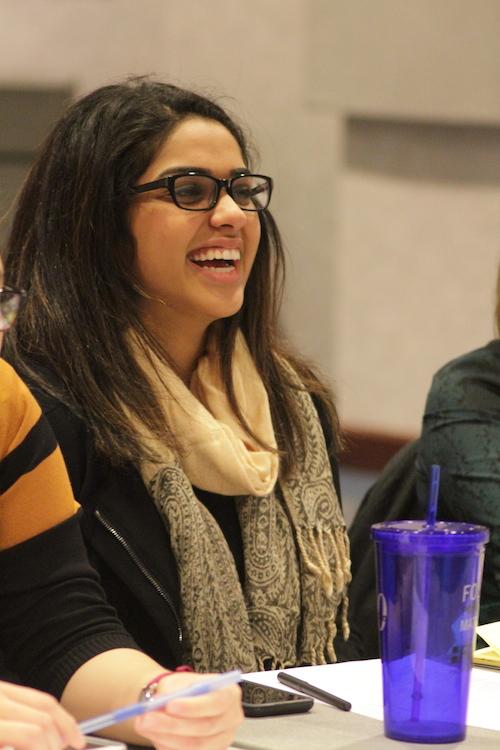There are currently an estimated 21 million human trafficking victims worldwide.
Ninety-eight percent of human sex trafficking victims are women, while 55 percent of human labor trafficking victims are men. The main form of human trafficking in Milwaukee is sex trafficking of girls as young as 13. These were some of the facts and statistics presented at the Human Trafficking Panel in the Alumni Memorial Union Oct. 27.
The panel was hosted by Catholic Relief Services, the Residence Hall Association and Sold Out, a new organization on campus working to raise awareness about human trafficking.
A wide array of professionals working in human trafficking aftercare, prevention, prosecution and awareness spoke at the event. They included Christopher Gooding, a Marquette theology professor and aftercare researcher; Deanne Lawson, co-founder of the non-profit Inner Beauty Center; Abbey DeSiato, Milwaukee assistant district attorney; and April Bentley, human trafficking survivor and author of the book, “Don’t Rush to Get Old.”
Attendees said they appreciated the array of viewpoints presented. “I thought it was interesting and good to see perspectives that I haven’t heard from before,” Erica Ness, a junior in the College of Arts & Sciences, said. “The panel was very knowledgeable and I thought they provided people with a lot of good information and resources if they want to get involved.”
Roughly 50 students, mostly women, attended the event. Grace Reid, a sophomore in the College of Arts & Sciences and CRS ambassador, said she was pleased with the turnout.
“I’m super happy because we put a lot of effort into this,” She said. “And to see the turnout and to see how many people came out to support and learn more about the issue is amazing.”
The night started with a discussion of the definition of human trafficking and led to further conversations about captive mentality, the differences between sex trafficking and prostitution, myths surrounding human trafficking and what actions are needed to prevent it.
Regarding prevention, Bentley emphasized the importance of a family structure. “Change starts in the home,” she said. “When the home is well, the community is well.”
This point especially stood out to Leah Jackson, a sophomore in the College of Communication and a CRS ambassador.
“A lot of human trafficking starts in the brokenness of the home and how kids aren’t treated in ways to make them feel like they have an identity besides their bodies, especially for girls,” Jackson said. “That’s a huge point that I think is so important.”
To bring human trafficking to a local level, the panel showed students how they can make a difference. Lawson encouraged students to volunteer at the Inner Beauty Center, where they can work one-on-one with victims of human trafficking. At the end of the event, students also signed advocacy cards petitioning Sen. Ron Johnson to pass a bill calling for transparency in all business transactions, so consumers can tell if human trafficking was used in the production of their products.
For many Marquette students, human trafficking is an issue that usually goes unnoticed.
“It’s a very heavy subject and it’s not something people like to talk about,” Jackson said. “It’s not something, at least for a lot of Marquette University students, that has been talked about in our homes. We don’t walk around and see it.”
The goal of the event was to start a conversation to raise awareness about human trafficking globally and locally and to encourage students to become a part of the solution.
“Often when we hear the term human trafficking, we think it’s this abstract global concept that we have no impact over,” Reid said. “But it’s right here in our backyard and it’s here in Milwaukee and it’s super prevalent. That’s why it’s important for us to have these information sessions because people just don’t know, and if they don’t know they can’t act on it and change it.”





